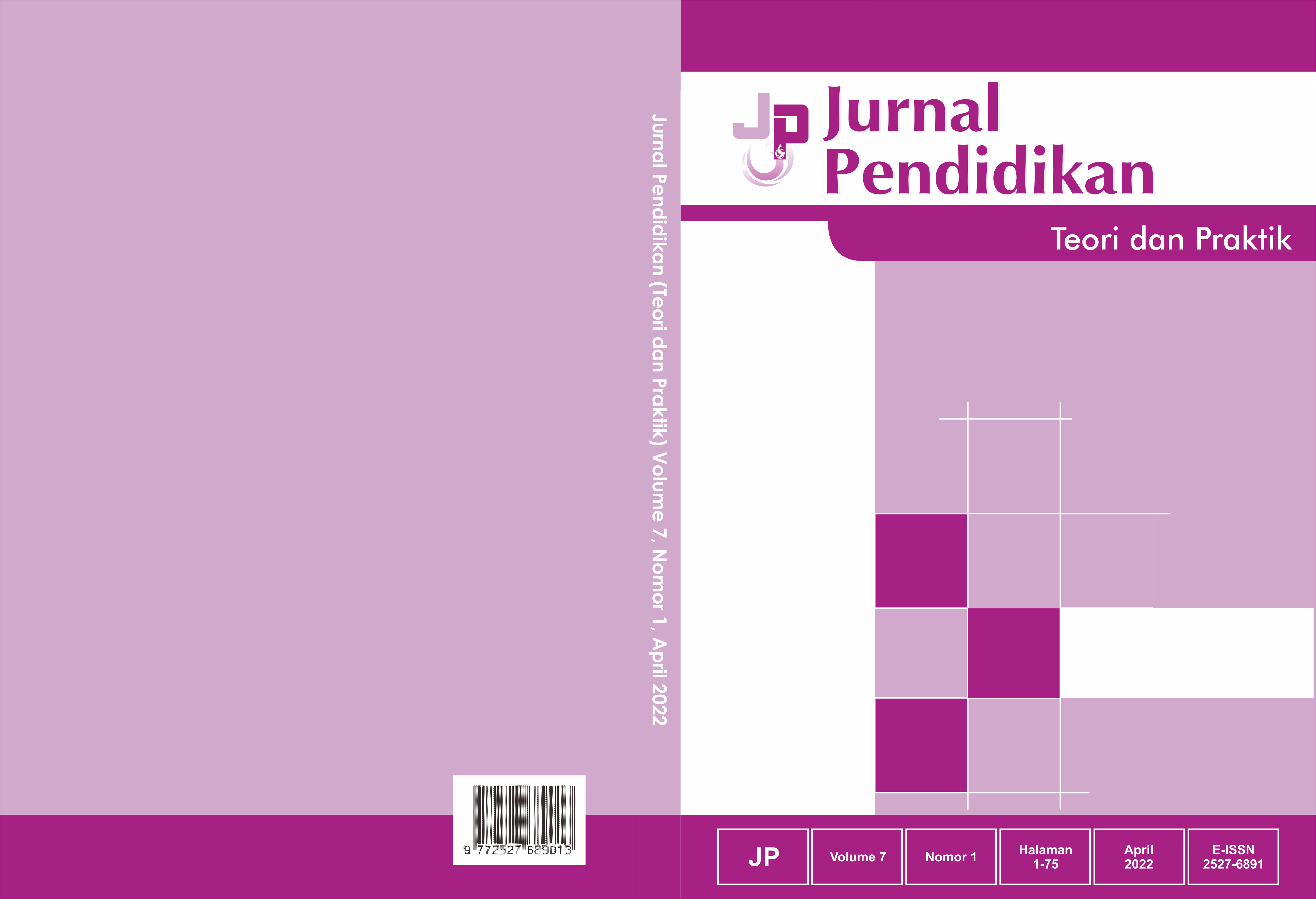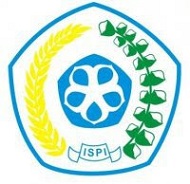Tracing the Role of Artificial Intelligence in Self-Regulated Learning: A Systematic Review Using the Winne and Hadwin Framework (2007–2025)
DOI:
https://doi.org/10.26740/jp.v10n1.p78-92Keywords:
self regulated learning, artificial intelligence (AI) technology, Educational Chatbots, Generative AI, Learning ReflectionAbstract
Self-regulated learning (SRL) has emerged as a key competency in modern education. It enables students to take charge of their learning by planning, monitoring, and evaluating their progress. As artificial intelligence (AI) advances rapidly, educational technologies such as chatbots, intelligent tutoring systems, and generative AI tools are being increasingly introduced in classrooms and on online platforms. Although these technologies are often integrated to enhance learning outcomes, their specific role in supporting self-regulated learning (SRL) remains understudied. This paper presents a systematic review of 22 peer-reviewed articles published between 2007 and May 2025. The goal is to map how AI technologies contribute to the different phases of SRL using the framework proposed by Winne and Hadwin (1998) and updated by Winne (2018). The findings indicate that most AI tools provide substantial support during the strategy enactment phase, while fewer focus on planning and metacognitive monitoring. Two phases that are central to SRL’s cyclical nature, task understanding and reflective adaptation, receive comparatively little attention. From a dimensional perspective, cognitive and metacognitive processes are the most frequently addressed, whereas motivational and emotional components are often overlooked. Over 80% of the studies reported a positive impact of AI on SRL behaviors, and approximately 65% noted improvements in academic performance. These results underscore the importance of designing AI systems that are intelligent, responsive, empathetic, and aligned with the realities of student learning. Future research should consider developing emotionally aware, multi-phase AI tools, particularly chatbots, that can accompany learners through the full cycle of SRL in a personalized, ongoing manner.
References
Al-Abri, A. (2025). Exploring ChatGPT as a virtual tutor: A multi-dimensional analysis of large language models in academic support. Education and Information Technologies. https://doi.org/10.1007/s10639-025-13484-x
Alqahtani, T., Badreldin, H. A., Alrashed, M., Alshaya, A. I., Alghamdi, S. S., Bin Saleh, K., Alowais, S. A., Alshaya, O. A., Rahman, I., & Al Yami, M. S. (2023). The emergent role of artificial intelligence, natural learning processing, and large language models in higher education and research. Research in Social and Administrative Pharmacy, 19(8), 1236–1242.
Azevedo, R., Bouchet, F., Duffy, M., Harley, J., Taub, M., Trevors, G., Cloude, E., Dever, D., Wiedbusch, M., Wortha, F., & Cerezo, R. (2022). Lessons Learned and Future Directions of MetaTutor: Leveraging Multichannel Data to Scaffold Self-Regulated Learning With an Intelligent Tutoring System. Frontiers in Psychology, 13. https://doi.org/10.3389/fpsyg.2022.813632
Barberis, N., & Jin, L. J. (2023). Model-free and model-based learning as joint drivers of investor behavior. Available at SSRN 4331775. https://papers.ssrn.com/sol3/papers.cfm?abstract_id=4331775
Blaschke, L. M. (2021). The dynamic mix of heutagogy and technology: Preparing learners for lifelong learning. British Journal of Educational Technology, 52(4), 1629–1645. https://doi.org/10.1111/bjet.13105
Bowen, N. E. J. A., Thomas, N., & Vandermeulen, N. (2022). Exploring feedback and regulation in online writing classes with keystroke logging. Computers and Composition, 63, 102692. https://doi.org/10.1016/j.compcom.2022.102692
Chang, D. H., Lin, M. P.-C., Hajian, S., & Wang, Q. Q. (2023). Educational Design Principles of Using AI Chatbot That Supports Self-Regulated Learning in Education: Goal Setting, Feedback, and Personalization. Sustainability, 15(17), 12921. https://doi.org/10.3390/su151712921
Chansa Thelma, C., Hassan Sain, Z., Mpolomoka, D. L., Matthew Akpan, W., & Davy, M. (2024). Curriculum Design for the Digital Age: Strategies for Effective Technology Integration in Higher Education. International Journal of Research (IJR) International Journal of Research. https://doi.org/10.5281/ZENODO.13123899
Chen, S., Cheng, H., & Huang, Y. (2024). Emotion Recognition in Self-Regulated Learning: Advancing Metacognition Through AI-Assisted Reflections (pp. 185–212). https://doi.org/10.1007/978-3-031-64487-0_9
Cleary, T. J., Durning, S. J., Gruppen, L. D., Hemmer, P. A., & Artino Jr, A. R. (2013). Self-regulated learning. Oxford Textbook of Medical Education, 465.
Cooke, A., Smith, D., & Booth, A. (2012). Beyond PICO. Qualitative Health Research, 22(10), 1435–1443. https://doi.org/10.1177/1049732312452938
D’Mello, S. K., & Graesser, A. (2023). Intelligent tutoring systems: How computers achieve learning gains that rival human tutors. In Handbook of educational psychology (pp. 603–629). Routledge.
Diddee, A. (n.d.). A Critical Analysis Of Self-Regulated Learning And Strategy Use: SRL In NZ Schools’ Policies, And Some Implications For Students With Learning Difficulties.
Du, Q. (2025). How artificially intelligent conversational agents influence EFL learners’self-regulated learning and retention. Education and Information Technologies. https://doi.org/10.1007/s10639-025-13602-9
Ferreira da Rocha, F. D., Lemos, B., Henrique de Brito, P., Santos, R., Rodrigues, L., Isotani, S., & Dermeval, D. (2024). Gamification and open learner model: An experimental study on the effects on self-regulatory learning characteristics. Education and Information Technologies, 29(3), 3525–3546. https://doi.org/10.1007/s10639-023-11906-2
Han, I., Ji, H., Jin, S., & Choi, K. (2025). Mobile-based artificial intelligence chatbot for self-regulated learning in a hybrid flipped classroom. Journal of Computing in Higher Education. https://doi.org/10.1007/s12528-025-09434-8
Hartley, K., Hayak, M., & Ko, U. H. (2024). Artificial Intelligence Supporting Independent Student Learning: An Evaluative Case Study of ChatGPT and Learning to Code. Education Sciences, 14(2), 120. https://doi.org/10.3390/educsci14020120
Harvey, N. D. (2024). Non-Traditional Students’ Perceptions of the Learning Management System’s (LMS) Support of Self-Regulation Skills: A Phenomenological Study.
Hooda, M., Rana, C., Dahiya, O., Rizwan, A., & Hossain, M. S. (2022). Artificial Intelligence for Assessment and Feedback to Enhance Student Success in Higher Education. Mathematical Problems in Engineering, 2022, 1–19. https://doi.org/10.1155/2022/5215722
Ji, Y., Zhong, M., Lyu, S., Li, T., Niu, S., & Zhan, Z. (2025). How does AI literacy affect individual innovative behavior: the mediating role of psychological need satisfaction, creative self-efficacy, and self-regulated learning. Education and Information Technologies. https://doi.org/10.1007/s10639-025-13437-4
Kay, J. (2023). Foundations for Human-AI teaming for self-regulated learning with explainable AI (XAI). Computers in Human Behavior, 147, 107848. https://doi.org/10.1016/j.chb.2023.107848
Li, S., & Lajoie, S. P. (2022). Cognitive engagement in self-regulated learning: an integrative model. European Journal of Psychology of Education, 37(3), 833–852. https://doi.org/10.1007/s10212-021-00565-x
Li, T., Nath, D., Cheng, Y., Fan, Y., Li, X., Raković, M., Khosravi, H., Swiecki, Z., Tsai, Y.-S., & Gašević, D. (2025). Turning Real-Time Analytics into Adaptive Scaffolds for Self-Regulated Learning Using Generative Artificial Intelligence. Proceedings of the 15th International Learning Analytics and Knowledge Conference, 667–679. https://doi.org/10.1145/3706468.3706559
Li, T., Yan, L., Iqbal, S., Srivastava, N., Singh, S., Raković, M., Swiecki, Z., Tsai, Y.-S., Gašević, D., Fan, Y., & Li, X. (2025). Analytics of self-regulated learning strategies and scaffolding: Associations with learning performance. Computers and Education: Artificial Intelligence, 8, 100410. https://doi.org/10.1016/j.caeai.2025.100410
Liao, X., Zhang, X., Wang, Z., & Luo, H. (2024). Design and implementation of an AI ‐enabled visual report tool as formative assessment to promote learning achievement and self‐regulated learning: An experimental study. British Journal of Educational Technology, 55(3), 1253–1276. https://doi.org/10.1111/bjet.13424
Lin, Y.-L., Wang, W.-T., & Hsieh, M.-J. (2024). The effects of students’ self-efficacy, self-regulated learning strategy, perceived and actual learning effectiveness: A digital game-based learning system. Education and Information Technologies, 29(16), 22213–22245. https://doi.org/10.1007/s10639-024-12700-4
Martín-Rodríguez, A., & Madrigal-Cerezo, R. (2025). Technology-Enhanced Pedagogy in Physical Education: Bridging Engagement, Learning, and Lifelong Activity. Education Sciences, 15(4), 409. https://doi.org/10.3390/educsci15040409
Ortega-Ochoa, E., Quiroga Pérez, J., Arguedas, M., Daradoumis, T., & Marquès Puig, J. M. (2024). The effectiveness of empathic chatbot feedback for developing computer competencies, motivation, self-regulation, and metacognitive reasoning in online higher education. Internet of Things, 25, 101101. https://doi.org/10.1016/j.iot.2024.101101
Panadero, E. (2017). A Review of Self-regulated Learning: Six Models and Four Directions for Research. Frontiers in Psychology, 8. https://doi.org/10.3389/fpsyg.2017.00422
Parra-Gavilánez, L. F., & Totoy, A. D. (2024). Self-Regulated Learning Strategies: Zimmerman’s Cyclical Phases Model and Writing Skill (pp. 329–335). https://doi.org/10.1007/978-3-031-53382-2_31
Saputra, W. N. E., Handaka, I. B., & Sari, D. K. (2019). Self-Regulated Learning Siswa SMK Muhammadiyah di Kota Yogyakarta: Kedua Orang Tua Berpengaruhkan? Jurnal Pendidikan (Teori Dan Praktik), 4(1), 7. https://doi.org/10.26740/jp.v4n1.p7-11
Shafiee Rad, H. (2025). Reinforcing L2 reading comprehension through artificial intelligence intervention: refining engagement to foster self-regulated learning. Smart Learning Environments, 12(1), 23. https://doi.org/10.1186/s40561-025-00377-2
Sun, D., Xu, P., Zhang, J., Liu, R., & Zhang, J. (2025). How Self-Regulated Learning Is Affected by Feedback Based on Large Language Models: Data-Driven Sustainable Development in Computer Programming Learning. Electronics, 14(1), 194. https://doi.org/10.3390/electronics14010194
Uden, L., & Ching, G. S. (2024). Activity Theory-based Ecosystem for Artificial Intelligence in Education (AIED). International Journal of Research Studies in Education, 13(5). https://doi.org/10.5861/ijrse.2024.24000
Vieriu, A. M., & Petrea, G. (2025). The Impact of Artificial Intelligence (AI) on Students’ Academic Development. Education Sciences, 15(3), 343. https://doi.org/10.3390/educsci15030343
Wang, J., Lu, S., Wang, S. H., & Zhang, Y. D. (2022). A review on extreme learning machine. Multimedia Tools and Applications. https://doi.org/10.1007/s11042-021-11007-7
Wang, K., Cui, W., & Yuan, X. (2025). Artificial Intelligence in Higher Education: The Impact of Need Satisfaction on Artificial Intelligence Literacy Mediated by Self-Regulated Learning Strategies. Behavioral Sciences, 15(2), 165. https://doi.org/10.3390/bs15020165
Weber, F., Wambsganss, T., & Söllner, M. (2025). Enhancing legal writing skills: The impact of formative feedback in a hybrid intelligence learning environment. British Journal of Educational Technology, 56(2), 650–677. https://doi.org/10.1111/bjet.13529
Winne, P. H. (2023). Roles for Information in Trace Data Used to Model Self-Regulated Learning (pp. 175–196). https://doi.org/10.1007/978-3-031-30992-2_11
Winne, P. H., & Hadwin, A. F. (1998). Studying as self-regulated learning. In, DJ Hacker, J. Dunlosky, & AC Graesser. Metacognition in Educational Theory and Practice, 277–304.
Wong, J., & Viberg, O. (2024). Supporting Self-Regulated Learning with Generative AI: A Case of Two Empirical Studies. LAK Workshops, 223–229.
Xia, Q., Chiu, T. K. F., & Chai, C. S. (2023). The moderating effects of gender and need satisfaction on self-regulated learning through Artificial Intelligence (AI). Education and Information Technologies, 28(7), 8691–8713. https://doi.org/10.1007/s10639-022-11547-x
Xu, X., Qiao, L., Cheng, N., Liu, H., & Zhao, W. (2025). Enhancing self‐regulated learning and learning experience in generative AI environments: The critical role of metacognitive support. British Journal of Educational Technology. https://doi.org/10.1111/bjet.13599
Zawacki-Richter, O., Marín, V. I., Bond, M., & Gouverneur, F. (2019). Systematic review of research on artificial intelligence applications in higher education – where are the educators? International Journal of Educational Technology in Higher Education, 16(1), 39. https://doi.org/10.1186/s41239-019-0171-0
Zhang, C. (2023). Influences of Problem-Based Online Learning on the Learning Outcomes of Learners. International Journal of Emerging Technologies in Learning, 18(1), 152 – 163. https://doi.org/10.3991/ijet.v18i01.36705
Zhang, L., & Hew, K. F. (2025). Leveraging unlabeled data: Fostering self-regulated learning in online education with semi-supervised recommender systems. Education and Information Technologies, 30(6), 7117–7142. https://doi.org/10.1007/s10639-024-13111-1
Zhang, Z. (2025). The Role of Artificial Intelligence Tools on Chinese EFL Learners’ Self‐Regulation, Resilience and Autonomy. European Journal of Education, 60(2). https://doi.org/10.1111/ejed.70127
Zhu, M. (2025). Leveraging ChatGPT to Support Self-Regulated Learning in Online Courses. TechTrends. https://doi.org/10.1007/s11528-025-01075-z
Downloads
Published
How to Cite
Issue
Section
License

This work is licensed under a Creative Commons Attribution-ShareAlike 4.0 International License.
 Abstract views: 938
,
Abstract views: 938
, PDF Downloads: 906
PDF Downloads: 906








.png)





